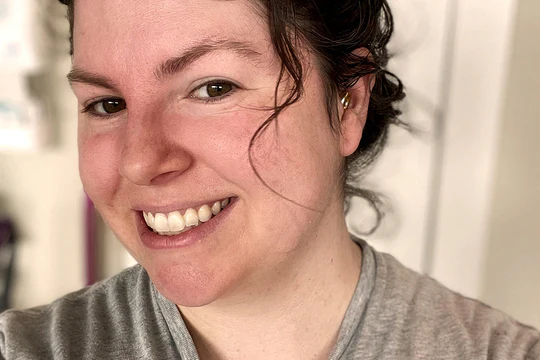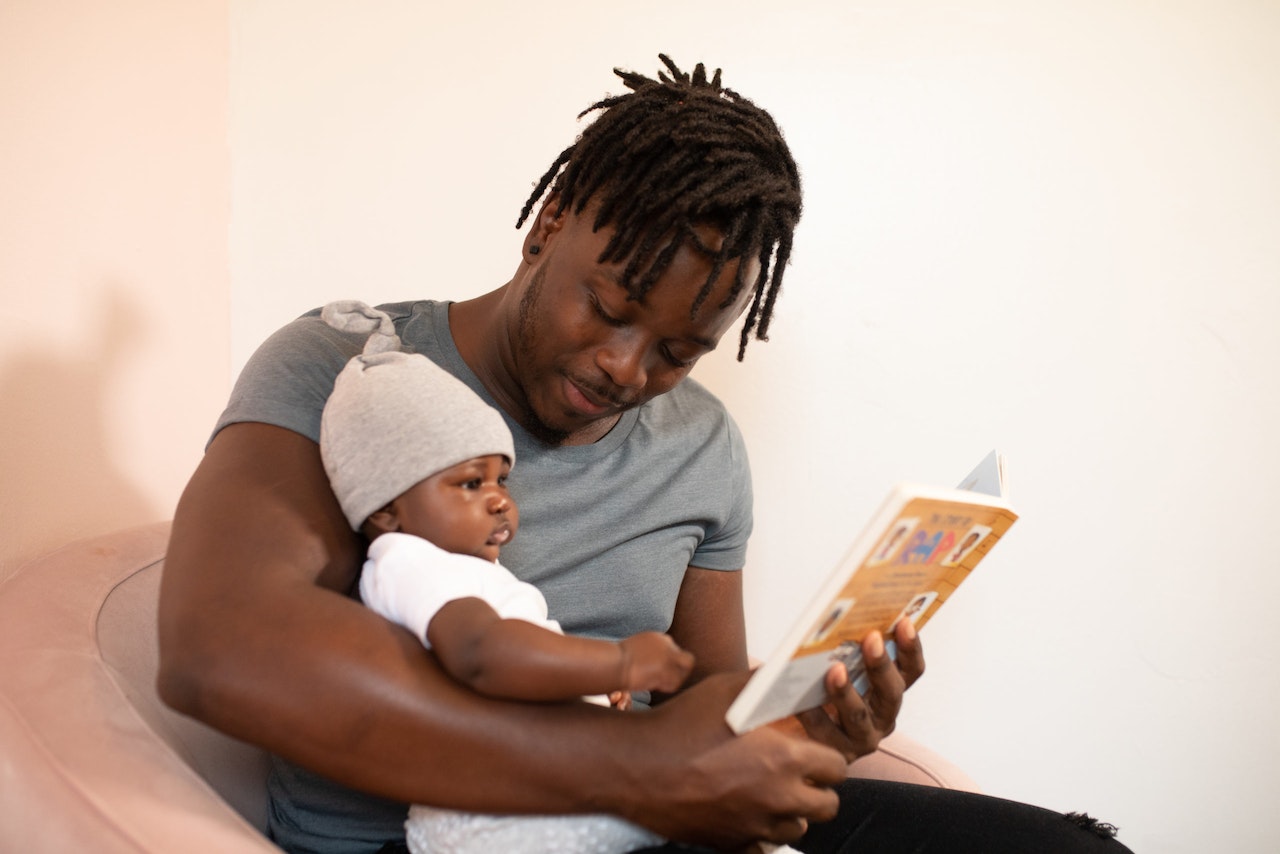Key highlights:
- It’s very common for newborn babies to cry a lot. It’s their only way of communicating with you and the world around them.
- There are several reasons your baby could be crying, such as tiredness, hunger, or pain – and each of these cries can sound slightly different.
- You can try and soothe your baby with techniques such as singing, rocking, or taking them for a walk in the pram.
- You could also try minimizing the impact that your baby’s crying has on you, with tools like noise-reducing earplugs and white noise machines.
- You also have to remember to look after yourself. After all, you can’t look after your baby without filling up your own cup first.
There’s no sugarcoating it: Parenting a newborn is hard.
The idyllic scenario of a baby snoozing peacefully in their cot all night long is a rarity (it just looks great in movies).
In reality, any new parent will tell you that it’s not all butterflies and rainbows.
Yes, babies are wonderful. And cute. And they smell amazing.
But they can also cry. And cry. And cry and cry. And the really tough thing is when you’ve tried everything, and they still won’t stop.
You’ve rocked them for hours. You’ve driven them around the block more times than you can count. And of course, white noise has been the soundtrack to your life for days.
Add raging hormones and sleep deprivation into the mix and you have the perfect storm of emotion, exasperation, and exhaustion. Not to mention you can’t remember the last time you brushed your hair or took a shower.
It’s easy to start doubting your parenting abilities. But you’re not at fault; it’s just part of the wonder of parenting life.
In this blog post, we’re going to take a closer look at why babies cry, how to deal with a crying baby, and how to get a handle on newborn frustration. Plus, how to look after yourself in the process.
Let’s get started.
Understanding the crying baby
You’ve tried feeding. Burping. Changing. No fever. No rashes. Are they cold? Too hot? Maybe it’s gas. Or teething? Whatever the cause, you’re stressed out – and experiencing auditory overload..
You’ve thought of everything. But they just won’t stop crying. It’s starting to feel like all you can hear is the sound of your infant screaming.
Remember, it’s not your fault – and it’s not their fault, either. Some babies cry more than others, especially during the early months of life. And it’s often for reasons that we can’t fully understand.
As they can’t talk yet, crying is the way they communicate. When babies hit two weeks of age, the amount of crying generally increases, peaking at around six to eight weeks and then calming down at around four months.
Different types of cries
If you listen carefully, you’ll hear that your baby sometimes cries in different ways – and each of those cries can send a different message, from hunger to discomfort, and from illness to pain. Over time, you’ll tune into what your baby’s different cries mean – but in the meantime, here’s a rough guide:
- Hungry cry: At first, these cries are long and low-pitched, broken up by long pauses. As your baby gets hungrier, the cries will get longer and louder ,with shorter pauses between cries.
- Discomfort or fussiness: If your baby is uncomfortable, tired, or just generally fussy, they may cry mildly, on and off – and the longer it goes on, the louder the cries will become.
- Sick cry: If your baby is unwell, their cry will sound different to what you’re used to. If they keep crying, no matter what, they may be sick.
- Pain: If your little one is in pain, their cry may sound like shrieking or wailing, and it’s likely to be high-pitched.
Looking at your baby’s body language, facial expressions, and general demeanor will also help you to interpret what their cries mean – and sometimes it may take a little trial and error to figure out why they’re crying.
Reasons your baby might be crying
Here are some common reasons why your baby might be crying:
- They’re too cold (or too hot)
Check they’re wearing the right amount of clothing. A good tip to follow is to make sure they’re wearing one or two layers more than you. As for their bedroom, make sure they’re sleeping at a comfortable temperature, ideally between 16° and 20° Celsius (61 - 68 F).
- They’re hungry
Babies get hungry – a lot. So chances are it’s time for a feed. Especially if they’re giving you cues such as putting a hand to their mouth and turning their head.
- They need a diaper change
They might be feeling uncomfortable from a wet or soiled diaper. Make sure you change them frequently, and ensure they’re completely dry before putting another one on – as you don’t want them getting diaper rash.
- They want a cuddle
Sometimes they’re just looking for a bit of affection and human contact. You never know, a little cuddle might be all you need to calm your baby and de-stress yourself.
- They’ve got trapped wind
It’s common when babies are feeding, especially during the early stages, that they swallow little bubbles of air. These tiny bubbles then get trapped in their tummy, bringing them discomfort and sometimes pain. Try winding and burping them after every feed to help get rid of the air bubbles.
- They’re tired
It’s hard work being a baby, especially with all the energy they’re using to grow. If your baby’s yawning or rubbing their eyes, it’s probably naptime. Check out these safe sleeping guidelines for extra peace of mind.
- They’re overstimulated
Sometimes in our ongoing quest for an “easy bedtime” we can go overboard on the rocking and singing. Instead of putting your baby at ease it could have overstimulated and may be keeping them awake.

Coping strategies for parents
It’s easy to forget that there’s another important person in this scenario: you.
Coupled with all the other things that parenthood brings – financial stress, feelings of isolation, exhaustion, etc. – it’s easy for your mental state to suffer.
Here are some tips on how to cope with baby crying and become a calmer parent.
- Take a break
Put your baby in a safe place and give yourself a few minutes. Have something to eat, have a shower, or do something creative you enjoy. A brain break really does work wonders for regulating your emotions.
- Try some noise-reducing earplugs
The sound of a baby crying can reach 120 dB (close to the noise intensity of a departing plane).
Noise-reducing earplugs can help to offer protection for your ears (and your sanity). They limit the volume of parenting while allowing you to hear everything that you need to.
Loop Engage Plus offer up to 21 dB of noise reduction with complete sound clarity, allowing you to focus on remaining present and calm.
Loop Quiet take the edge off parenting life by reducing noise levels by up to 24 dB. They’re perfect for that much-needed sleep, but don’t worry, you’ll be sure you hear them when you need to.
- Practice breathing techniques
Do you get anxiety when your baby cries? You probably don’t realize, but when we’re panicked or stressed our breathing is often shallow. So try taking deep, even breaths in through your nose and out through your mouth. It sends a message to your nervous system that you’re safe.
- Take a nap
It may sound obvious (and maybe impossible), but chances are you’re simply strung out. Speak with your partner if you have a co-parent and try to get a good night’s sleep. You’ll find that just one good night’s sleep can be a game changer.
- Lean on friends or family
Try calling a friend or family member for a bit of support. Sometimes letting off steam is the ticket to resetting your brain and getting back some feeling of calm. And don’t be afraid to ask for help when you need it.
- Reach out to a midwife or health visitor
They’ll be able to suggest a more personalized strategy for coping and put you in touch with support groups in your area.
- Try positive talk
“It’s nothing I’m doing wrong.” “I’m a good parent.” “Everyone goes through this.”
The thing is, your baby loves you; this is totally normal. They’re just busy working through the early few months of their lives. So try and keep perspective, and remember that it’s all a normal part of parenting.
If you are experiencing feelings of sadness, depression, or loneliness or feel unable to care for your baby, make sure you reach out and speak to someone. It’s easy for parents to become overstimulated. You’re not alone. New parents need and deserve support.
Techniques to soothe a crying baby
Used to the sound of babies crying? It’s their way of communicating with you and the world around them. That’s not to say that it’s not distressing, especially if it happens a lot.
Here’s how to deal with a crying baby.
- Before anything, make sure they don’t have a fever. For babies, a temperature of 38°C (100.4°F) or above is a fever. Make sure to call your doctor if they do.
- Rock your baby. The rhythmic motion will really help to comfort them. You could even try putting them in a swing or vibrating seat.
- Sing or talk to your baby. We’re talking lullabies, cartoon theme tunes, or just simply talking to them in a hushed tone. You can even add a little gentle swaying dance into the mix.
- Offer your baby a pacifier. They might not be hungry but the sucking motion will bring them comfort and they’ll fall off to sleep.
- Take your baby for a walk in the stroller. The truth is that babies often sleep well on the move, as the bumpiness of the ground mimics that of you walking during pregnancy.
- Hold your baby close. This can be as simple as cuddling them close to you or using a swaddler, and letting them feel you take slow, calm, and deep breaths.
- Give your baby a warm bath. If they have any stomach pain the warm water will help, or they might just like the distraction.
- Rub their back. They might have some trapped wind somewhere, so you can pat and rub their back gently to see if that helps ease the discomfort. Place them across your lap on their belly and give their back a rub, as some parents find this more effective for relieving discomfort from air bubbles.
- Play music or white noise. Some babies respond to sound as well as movement. You could even try using the vacuum cleaner or the noise from the washing machine.
If they’re still crying, then there may be an underlying cause that a visit to the doctor should be able to help with, such as reflux or colic.
10M+ happy customers
Our earplugs
Managing the noise
When you’ve got a baby, there’s a lot going on. If you’re overstimulated as a parent – from crying, constant touch, sleep deprivation and whatever else you have to deal with on a daily basis – it can help to minimize the things that are causing you to feel overwhelmed.
If you’re struggling to cope with a crying baby, there are ways of minimizing the noise without completely blocking it out – crucial so you can remain attentive to your baby’s needs.
Traditional foam earplugs can block out noise. Not an ideal solution when you’re parenting and need to be able to hear when your baby is crying. But specially designed earplugs, like Loop Engage earplugs, can be a great way of taking the edge off the noise while still ensuring you can hear everything that’s going on around you.
You could also consider using other methods of reducing noise while staying attentive, like white noise machines. These create a consistent, soothing sound which can help to mask the sound of your baby crying, without blocking them out completely. You may also try playing soft music or nature sounds to create a calming atmosphere, without completely blocking out the noise of your little one.
Loop Earplugs as a solution
The sound of a baby crying can reach 120 dB (close to the noise intensity of a departing plane). That’s pretty loud – so it’s no wonder that you might find it at times when it feels like your baby won’t stop crying.
Noise-reducing earplugs for parents can help to offer protection for your ears (and your sanity). They limit the volume of parenting while allowing you to hear everything that you need to – plus, they’re super comfortable thanks to the soft, silicone ear tips that come in a range of sizes to fit your ears.
Loop Engage earplugs offer up to 16 dB (SNR) and 10 dB (NRR) of noise reduction with complete sound clarity, allowing you to focus on remaining present and calm.
Loop Quiet take the edge off parenting life by reducing noise levels by up to 24 dB (SNR) and 14 dB (NRR). They’re perfect for that much-needed sleep, but don’t worry, you’ll be sure you hear them when you need to.
Key takeaways
- It can be stressful and overwhelming when it feels like your baby won’t stop crying – but you’re not alone
- There are various different reasons your baby might be crying, from hunger to pain, and all of these cries can sound slightly different
- Loop Earplugs can be a helpful tool in reducing the stress of your baby crying, while ensuring you can still hear everything that’s happening – because, of course, safety is always the top priority when it comes to your baby
- It’s important to experiment with different techniques to find out what works best for you and your little one

What To Look For In Noise Reduction Earplugs
Unlock expert tips for choosing the perfect noise-reduction earplugs! Discover key features to consider when choosing...

Sensory overload and kids during COVID - testimonial
COVID-19 has us all locked up inside, combining parenting, relation and work with little distraction. Sensory overloa...

How To Get Better Sleep By Improving Your Sleep Hygiene
Good sleep can improve your physical and mental health. Take a look at our guide to sleep hygiene to discover simple ...

















